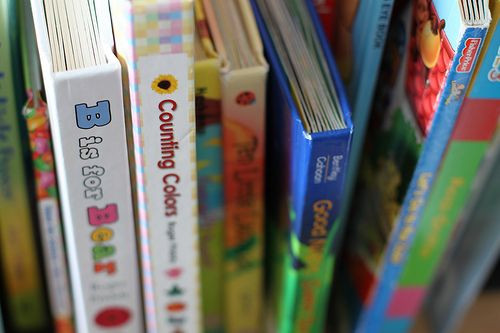Babies Can’t Learn To Read, No Matter How Much Confidence Parents Put In Word Development

It may be tempting to put a book in your child’s hands even before the neonatologist can check for vital signs, especially as society’s intellectual demands grow, but a new study from New York University suggests that babies can’t learn to read — regardless of how much their parents wish it to be true.
Reading ability has been a hotly researched topic since the early 1990s, and much of what science knows builds upon the theory that reading ability emerges in stages. Kids hear words, learn they’re made up of syllables, connect those syllables to text, and eventually widen their vocabulary with practice. But there are lower limits to when kids can pick up this ability, even when they appear to be reading before they’ve developed the ability to talk.
Together with a team of other NYU researchers, professor of early childhood and literacy education Susan Neuman collected data on 117 infants between 9 and 18 months old. The team separated participants into two groups. One group received intensive reading training, in the form of instruction DVDs and word and picture flashcards. Kids in this group received the reading treatment daily for seven months. The other group, meanwhile, received no instructional materials. Researchers conducted monthly assessments of language development, four lab visits, and one home visit.
Measuring reading ability in a child who can barely walk, let alone say a handful of words, is appreciably hard. Rather than drop War & Peace in the babies’ laps, the team relied on a sophisticated technique involving eye-tracking. When babies were placed in front of a screen, which displayed certain words, the team was able to record where the babies looked in relation to the words’ locations. If the babies’ eyes moved across a word from left to right, as would a normal reader’s, it indicated greater “reading ability” than if the child’s gaze floated freely across the screen.
The results? Children in the control group performed just as well in the assessments as babies that crammed daily for their monthly tests. There was no difference in reading ability. "While we cannot say with full assurance that infants at this age cannot learn printed words,” Neuman said in a statement, “our results make clear they did not learn printed words from the baby media product that was tested.”
Parents, Relax
What surprised Neuman most of all, though, was the fact parents expressed great confidence that their children were excelling. Like the father who’s certain his daughter’s swimming lessons are paying off in the pool, or the mother whose son’s violin chops are definitely improving, parents of kids in the reading group refused to believe the exercises were duds.
"It's clear that parents have great confidence in the impact of these products on their children," Neuman explained. "However, our study indicates this sentiment is misplaced." Rather, it may be the case that parents are fond of their children to begin with, so any supposed benefit may register as a false-positive, the parents simply seeing what they want to see.
In reality, experts say, reading can’t happen before age 4 or 5. Before then, a child’s brain hasn’t developed the neural architecture that allows vocab words to be paired with abstract meanings paired with fluid speech patterns. If a young child demonstrates an ability — say, pointing to a body part when she sees a command — oftentimes it’s the result of memorization.
“I think it’s misleading. I think it’s false, and I think it raises false expectations,” Dr. Karen Hopkins, a developmental pediatrician at NYU’s Langone Medical Center, told TODAY of the campaign on the part of media companies to sell to parents who want nothing more than to raise a prodigy.
The most effective strategy for instilling a love of reading in children is simply to read to them. “I believe parents are wasting precious resources and time on early reading exercises, and drill-like materials,” Neuman told Medical Daily. “Their time would be better spent on engaging them in more interesting and involving activities.”
Parents should encourage children to read along, and make sure they read new, challenging words. Let them mull the words over in their mouths, getting a feel for how they sound. Soon they’ll be able to do it on their own, and you’ll wonder why you ever tried to rush it.
Source: Neuman S, Kaefer T, Pinkham A, Strouse G. Can Babies Learn to Read? A Randomized Trial of Baby Media. Journal of Educational Psychology. 2014.



























